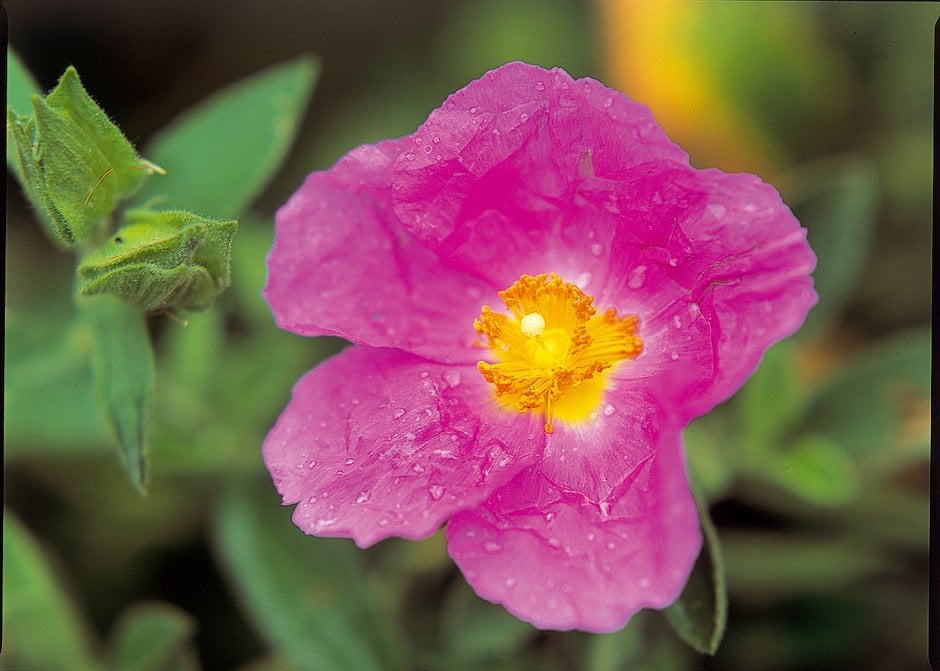Cistus creticus
Cretan rockrose
A very variable, small, bushy, evergreen shrub, to perhaps 1.5m tall, often with shaggily hairy stems and lightly aromatic green foliage. Flowers are variable in shade from deep purple-pink to rose pink, to 6cm across, with a yellow centre
Size
Ultimate height
1–1.5 metresTime to ultimate height
2–5 yearsUltimate spread
1–1.5 metresGrowing conditions
Moisture
Well–drainedpH
Acid, Alkaline, NeutralColour & scent
| Stem | Flower | Foliage | Fruit | |
| Spring | Green | |||
|---|---|---|---|---|
| Summer | Pink Yellow | Green | ||
| Autumn | Green | |||
| Winter | Green |
Position
- Full sun
Aspect
South–facing or West–facing
Exposure
Sheltered Hardiness
H4Botanical details
- Family
- Cistaceae
- Native to GB / Ireland
- No
- Foliage
- Evergreen
- Habit
- Bushy
- Genus
Cistus are evergreen shrubs with simple, opposite leaves and 5-petalled, bowl-shaped, white, pink or purplish flowers, each lasting a single day, over a long period in summer
- Name status
Correct
- Plant range
- Mediterranean
How to grow
Cultivation
Grow in poor to moderately fertile soil in sheltered site in full sun. Usually lime tolerant, but can become chlorotic on very alkaline soils
Propagation
Propagate by seed; sow as soon as ripe and keep in cold frame or sow in spring. Take softwood cuttings in summer
Suggested planting locations and garden types
- Coastal
- Gravel garden
- Rock garden
- City and courtyard gardens
- Cottage and informal garden
- Mediterranean climate plants
- Banks and slopes
- Flower borders and beds
Pruning
Pruning group 8 or pruning group 9. Generally does not respond well to hard renovation pruning
Pests
Generally pest-free
Diseases
May be susceptible to honey fungus
Love gardening
Sign up to receive regular gardening tips, inspiration, offers and more
View our Privacy Policy
Get involved
The Royal Horticultural Society is the UK’s leading gardening charity. We aim to enrich everyone’s life through plants, and make the UK a greener and more beautiful place.
